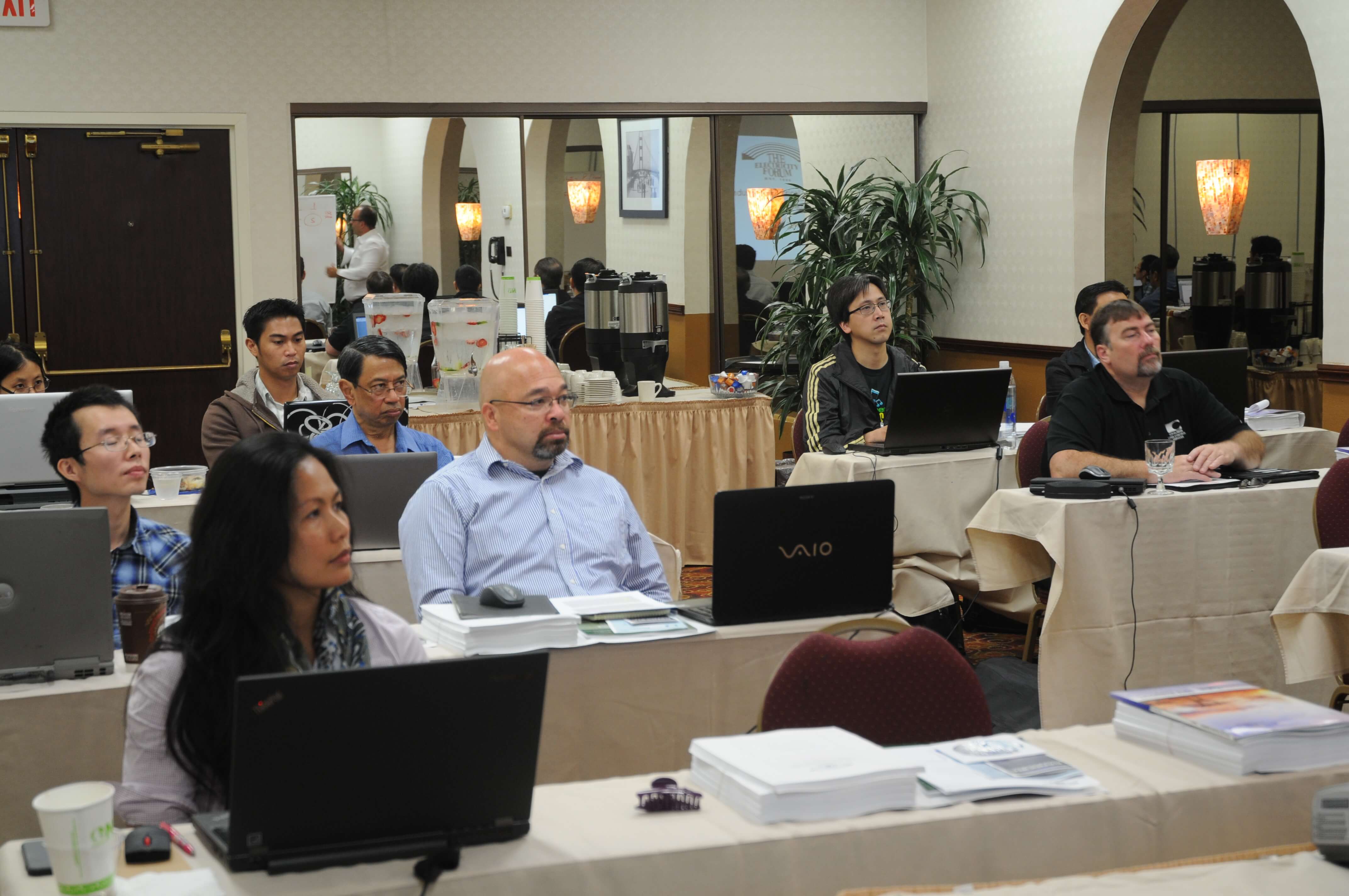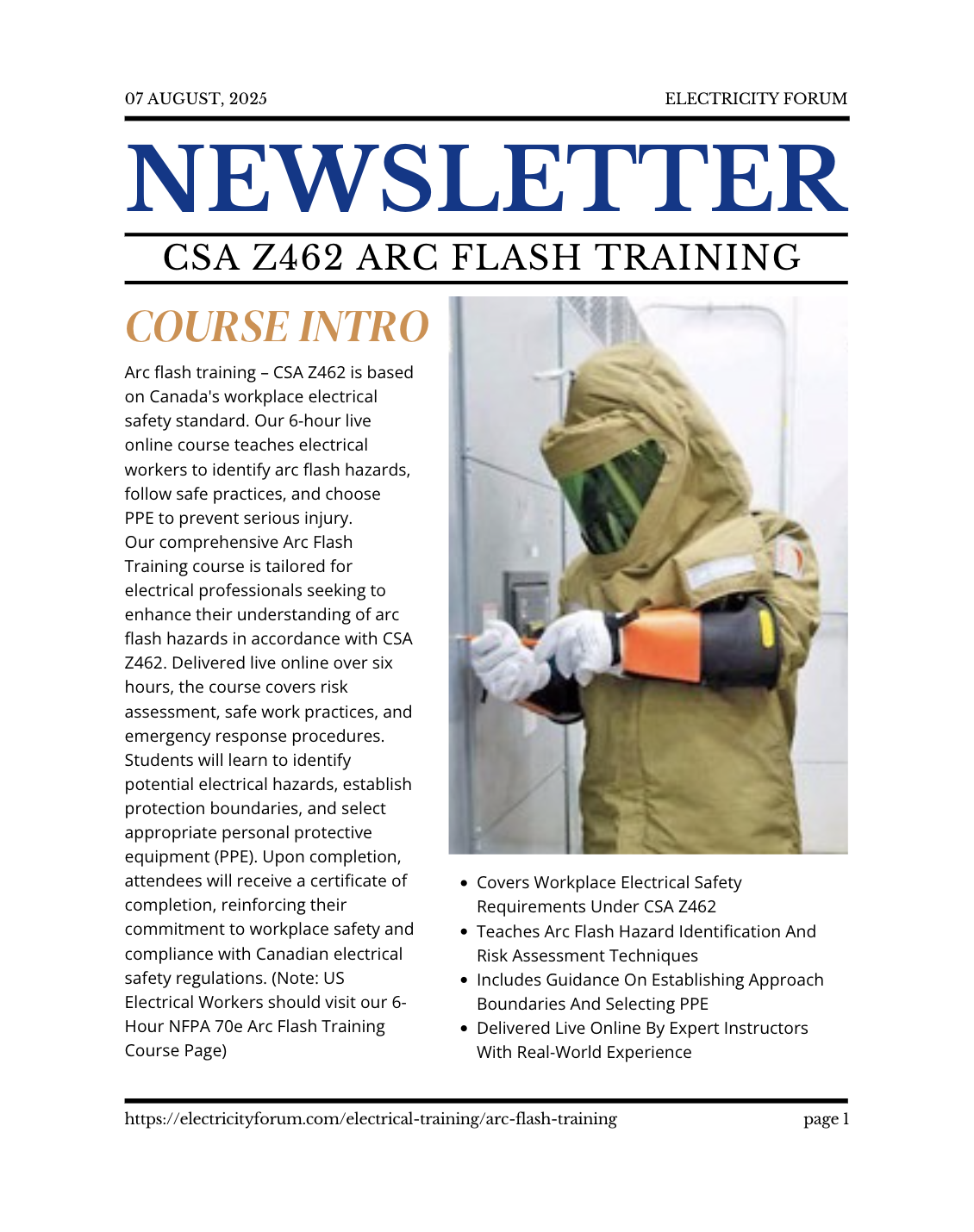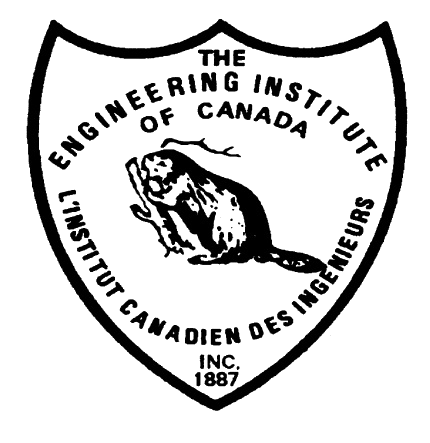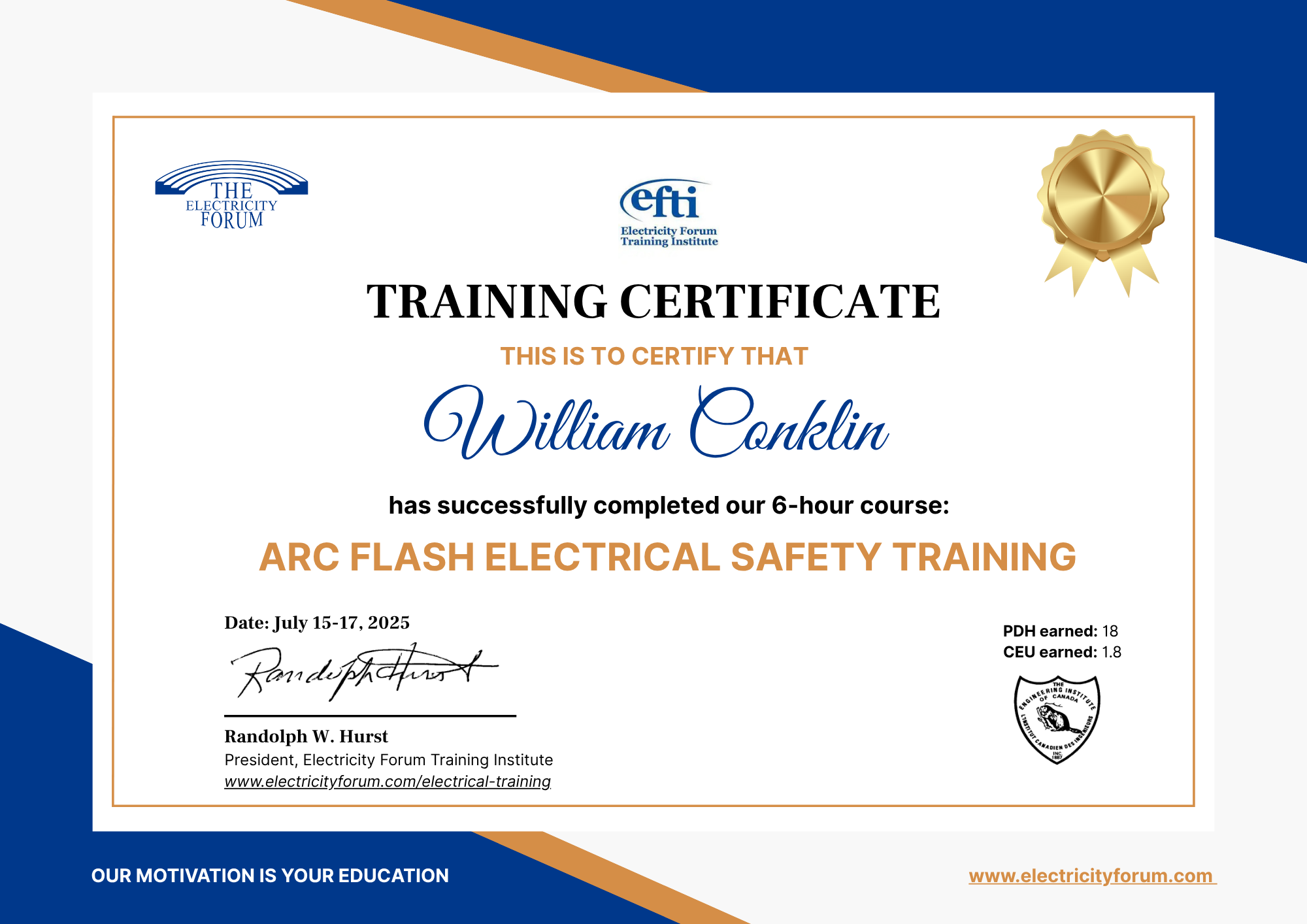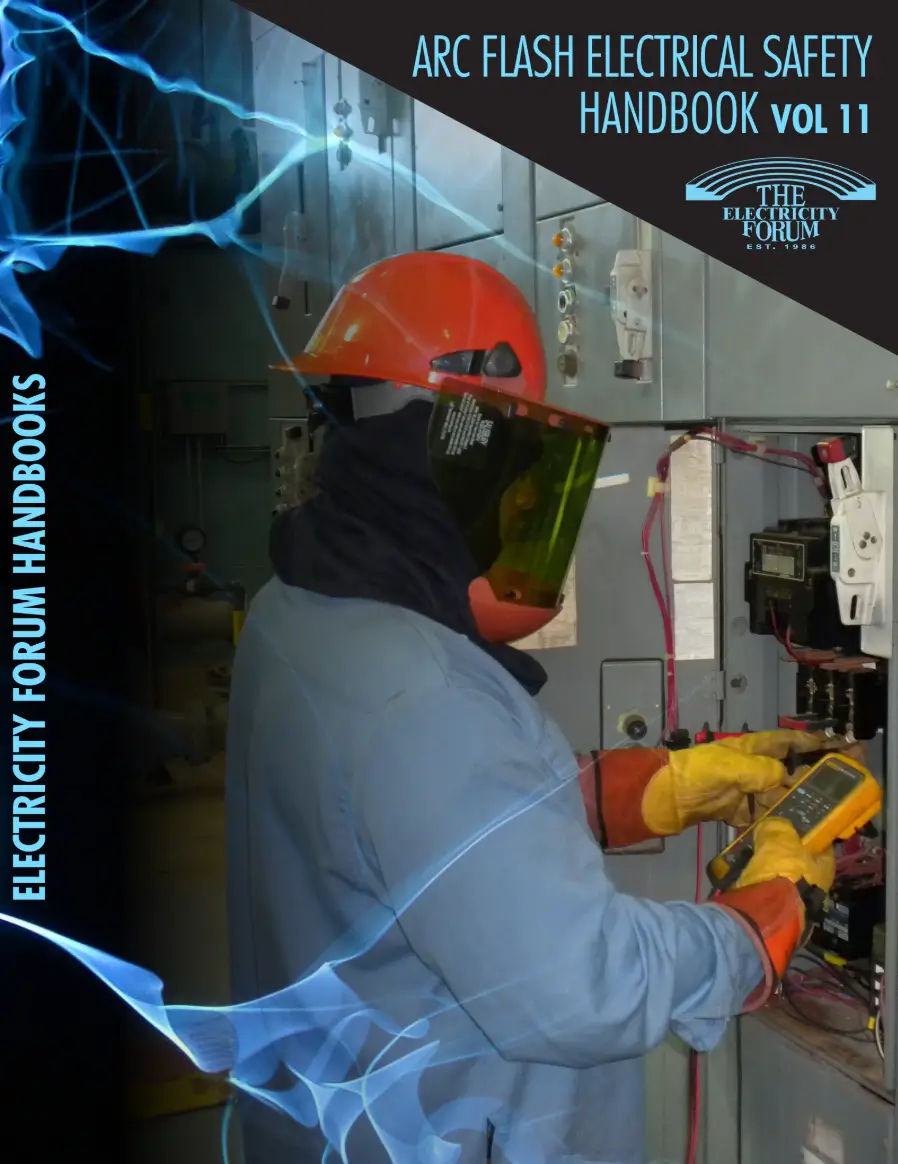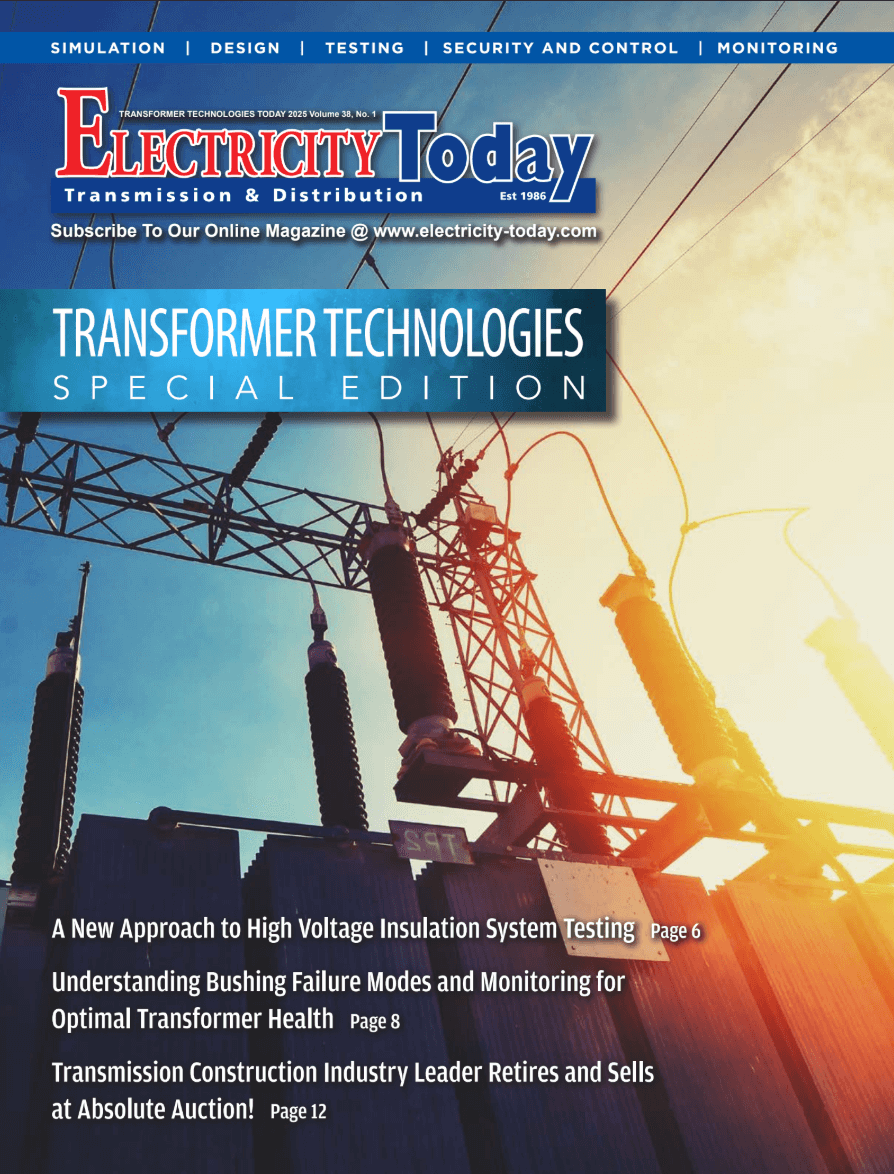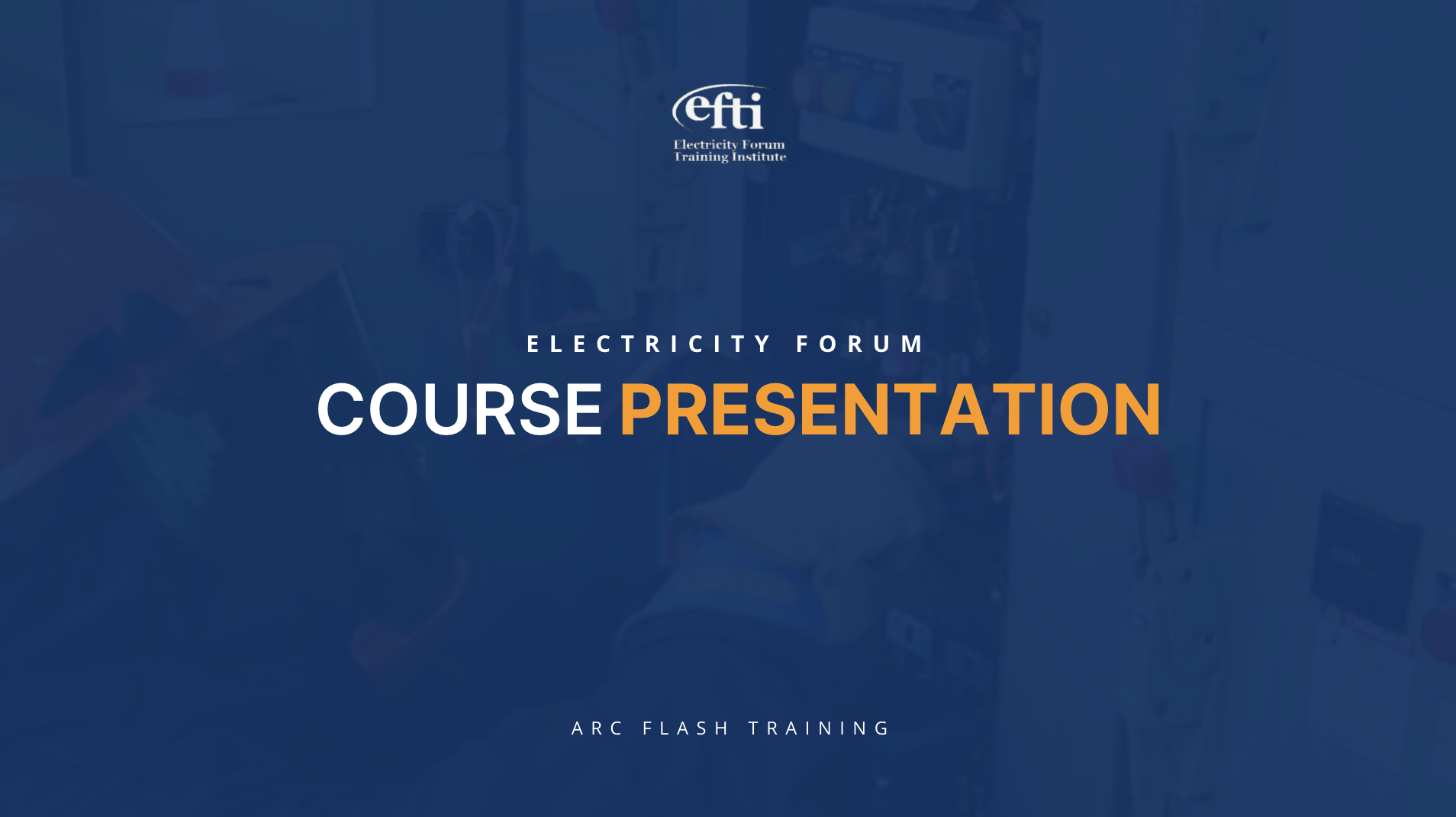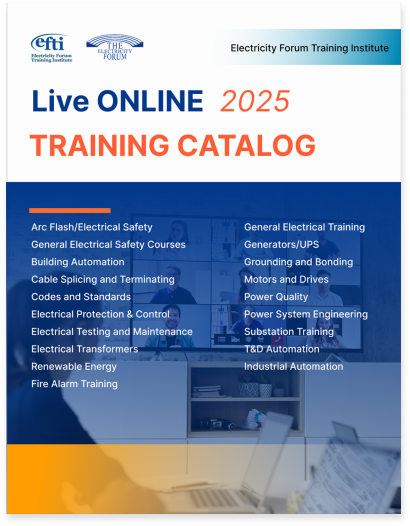MV/HV Electrical Maintenance And Testing of Electric Power Systems
Course Instructor
John Robin, Electrical Maintenance Consultant, The Electricity Forum
DAY ONE
SESSION 1: INSULATION MATERIALS AND TESTING METHODS
- Review of insulation materials and the methods to quickly and accurately diagnose insulation quality.
- Qualities of good insulation and factors affecting deterioration
- Methods of testing insulation and interpretation of test results
SESSION 2: POWER CABLE TESTING
- Cable construction and the methods to splice or terminate the various types of cable.
- Electrical code and splicing
- Difference between hot shrink stress cones and Cold shrink
- Examples of Stress cones and failure caused by poor installation
- Videos on stripping high voltage cable for termination
- Example of stripping high voltage cable
- Construction of shielded and non-shielded cable
- Cable installation methods
- Methods of testing cables and interpretation of test results
SESSION 3: POWER TRANSFORMER TESTING
- Review: Function and operation of electrical transformers.
- Interpret nameplate data
- Air cooled versus oil cooled; benefits and drawbacks
- Transformer protection systems
- Design and construction of power transformers
- Proper oil sampling methods
- Testing and scheduling maintenance procedures
- Recommendations for testing from CSA Z463 , Canadian maintenance standards
- Electrical safety procedures for power transformers
SESSION 4: INSTRUMENT TRANSFORMER TESTING
- Instrument transformer operation and application
- Current transformer operation and application
- Purpose of instrument transformers in metering
- Safety procedures critical to instrument transformers
- Testing of instrument transformers
SESSION 5: BREAKERS AND SWITCHGEAR
- Various types of power switchgear
- Difference between Switches and Breakers
- Operation of switchgear
- HV switchgear tests
- Switchgear maintenance and schedule
- Switchgear safety procedures
SESSION 6: CIRCUIT BREAKER MAINTENANCE
- Various types of circuit breakers
- Safety procedures critical to circuit breakers
- Correct steps for removal and restoration of a circuit breaker
- Operation of electrically operated circuit breaker controls
- Operation of circuit breaker mechanisms
- Maintenance on Oil Circuit Breakers, SF6 and Vacuum Circuit Breakers
SESSION 7: POWER FUSE TESTING
- Function of power fuses.
- Various types of fuses
- Testing fuse integrity and reliability
- Safety procedures when working with power fuses
- Correct steps for removal and restoration of power fuses
DAY TWO
SESSION 8: ELECTRICAL SAFETY AND ARC FLASH AWARENESS
- Define the Flash Protection boundary
- Define the two CSA Z462 shock protection boundaries and describe their use
- Identify the key objectives of job safety planning
- List the personal protective equipment required for shock protection
- List the steps to install and remove temporary protective grounding equipment
- Explain what an arc flash is and the injuries that can result
- Identify when an arc flash hazard exists
- Difference between “arc-rated” and “flame-resistant” clothing
- Select appropriate personal protective equipment for arc flash hazards using table
SESSION 9: PROTECTIVE RELAYS
- Principles and operation of protective devices.
- Power system disturbances
- Protective functions of various relays
- Relay settings and understanding probable problems
SESSION 10: POWER SYSTEM CO-ORDINATION
- Principles of co-ordination of protective devices.
- Process of power system co-ordination
- Interpreting time/current curves
- Videos on Coordination studies
SESSION 11: POWER SYSTEM STARTERS
- Operation of high voltage starters
- Various types of starters
- Types of motor protection
- Test procedures for starters
- Safety procedures critical to starters
SESSION 12: ELECTRIC MOTOR TESTING
- Operation of large horsepower motors.
- Various types of electric motors
- Test procedures for motors
- Motor maintenance and schedule
- Safety procedures critical to motor starters
SESSION 13: CAPACITOR TESTING
- Operation of high voltage capacitors.
- Various types of capacitor installations
- Test procedures for capacitors
- Safety procedures critical to capacitors
SESSION 14: GENERATOR MAINTENANCE
- Operation of high voltage generators.
- Operation of various types of generators
- Test procedures for generators
- Generator maintenance and schedule
- Safety procedures critical to generators
SESSION 15: EMERGENCY POWER SYSTEM TESTING
- Operation of various high voltage emergency power systems.
- Various types of emergency systems: batteries, transfers, ties, temporary etc.
- Test procedures for operation of these systems
- Maintenance and schedule for emergency systems
- Critical safety procedures
COURSE TIMETABLE
Both days:
Start: 8:00 a.m.
Coffee Break: 10:00 a.m.
Lunch: 12:00 noon
Restart: 1:15 p.m.
Finish: 4:30 p.m.





